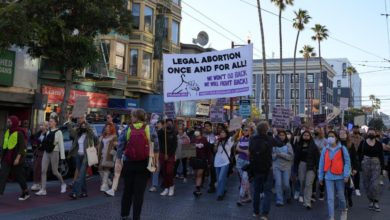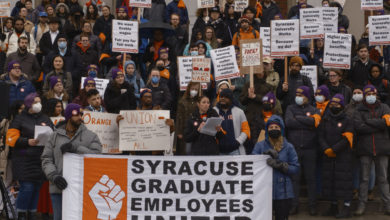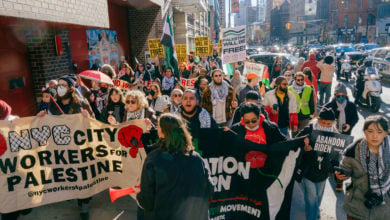Nearly 100 people, mostly women, attended the first Socialist Women’s Conference sponsored by the New York City branch of the Party for Socialism and Liberation. It was held on Sunday, Jan. 11.
The enthusiastic crowd participated in a full day of lectures, discussion and workshops focused on women’s leadership. The conference, putting women’s oppression in the framework of the oppression of the working class as a whole, aimed to provide participants with a perspective for greater activism, leadership development and greater involvement in all aspects of concern to working-class women.
 |
| Peta Lindsay speaks at the conference’s opening plenary |
Peta Lindsay, a Howard University student from Washington, D.C., first assessed the conditions of poverty and exploitation that afflict the working class in the United States, tying the conditions for the majority of women, working-class women, to their class. Lindsay then explained how that exploitation impacts women in particular.
“If you look at the number of adult women living in poverty, the rate was 13 percent in 2005, compared to 9 percent for men. If you look at the more than 10 million women who are single mothers, the poverty rate jumps to 36 percent,” explained Lindsay. She spoke about the special problems women face, such as rape, sexual harassment, domestic violence and reproductive rights.
Lindsay’s presentation ended describing how much has also been achieved so far through years of struggle pointing to future success.
Gloria La Riva, union leader and activist from San Francisco, then presented the socialist perspective on the way forward. She said, “The socialist perspective does include the fundamental understanding that every reform that is achieved under capitalism is under constant threat of being taken back by the capitalists. We see right now that abortion rights and women’s healthcare rights are under attack. People have to fight tooth and nail to defend these rights which are being seriously eroded not only in law but in reality as fewer and fewer women have access to healthcare.”
“Therefore,” La Riva explained, “women must secure their advancement and liberation by fighting for a new society based on people’s needs and not profit, such as was done previously in the USSR and Cuba.”
 |
| Conference attendees during the discussion period after the opening presentations |
La Riva further explained that women had to become leaders and activists on all fronts, such as in the anti-war movement. She called for all to build for the march on the Pentagon on March 17. She explained that this war was a defining issue in the United States today and women, being recipients in many ways of the horrors of the war, had to take a clear stance and become leaders in the movement.
Both Lindsay and La Riva are leading members of the Party for Socialism and Liberation.
Women and class struggle
Participants then broke into three groups to attend workshops. The Dominican Women’s Development Center, a local organization dedicated to the mentoring and development of young women in Washington Heights, hosted a workshop on young women’s leadership development and organizing.
A workshop on organizing working women was led by Damayan, a migrant workers organization; Gabriela Network, a Filipina women’s rights organization; and Donna Goodman, activist and union organizer from upstate New York. The third workshop was focused on women in the anti-war movement led by organizers with the ANSWER Coalition (Act Now to Stop War and End Racism).
The workshops were focused on presenting and sharing organizing strategies and finding common solutions to problems facing women.
 |
| Four of the eleven portraits — from left, Assata Shakur, Leila Khaled, Lolita Lebron, Rosa Luxemburg — painted for the conference |
The full body of the conference endorsed these resolutions after healthy discussion.
The conference was then closed by Jeanette Caceres, a member of the PSL-NYC branch. Summarizing the day, she recalled the conditions of the working class Lindsay alluded to in the earlier part of the program.
“This leaves room for only one reality—we are workers. And as women workers we are an extremely oppressed sector of this society. But there is an alternative. That alternative is socialism. We, in the Party for Socialism and Liberation, are trying to build a society based on people’s needs, not private profit for the few,” she stated.
After describing her own development, she said “I consider myself a leader today because I have a party.”
After inviting the participants to join the Party for Socialism and Liberation, Caceres said, “Our perspective is to build a party of leaders that will continue to push for women’s liberation as vehemently and committed as they would the working class and anti-imperialist struggles.”






